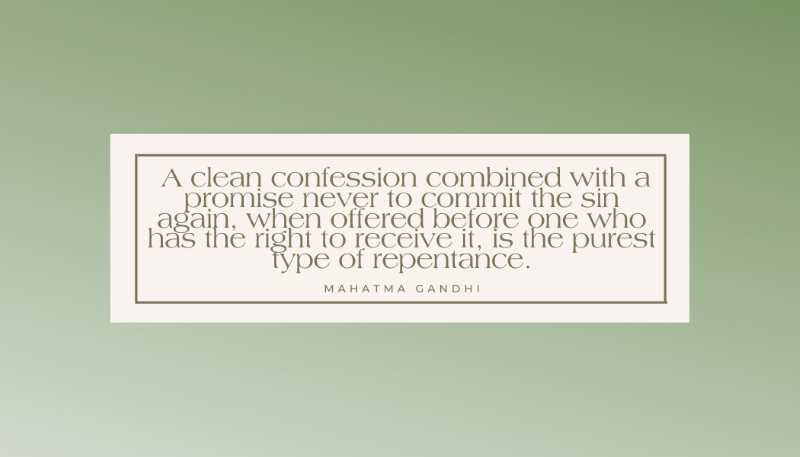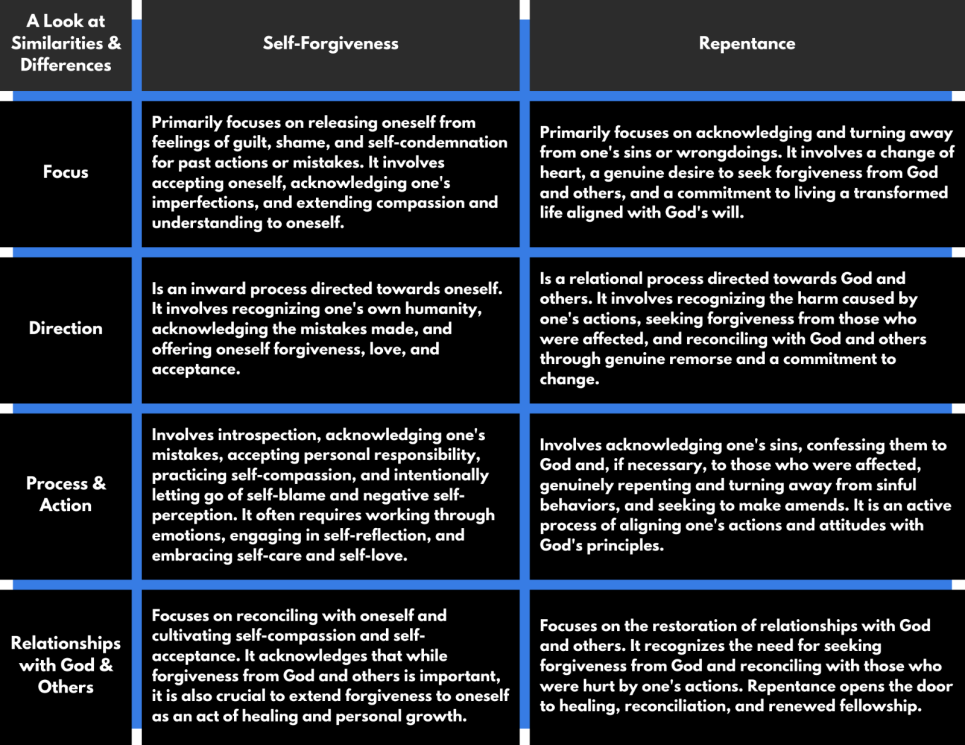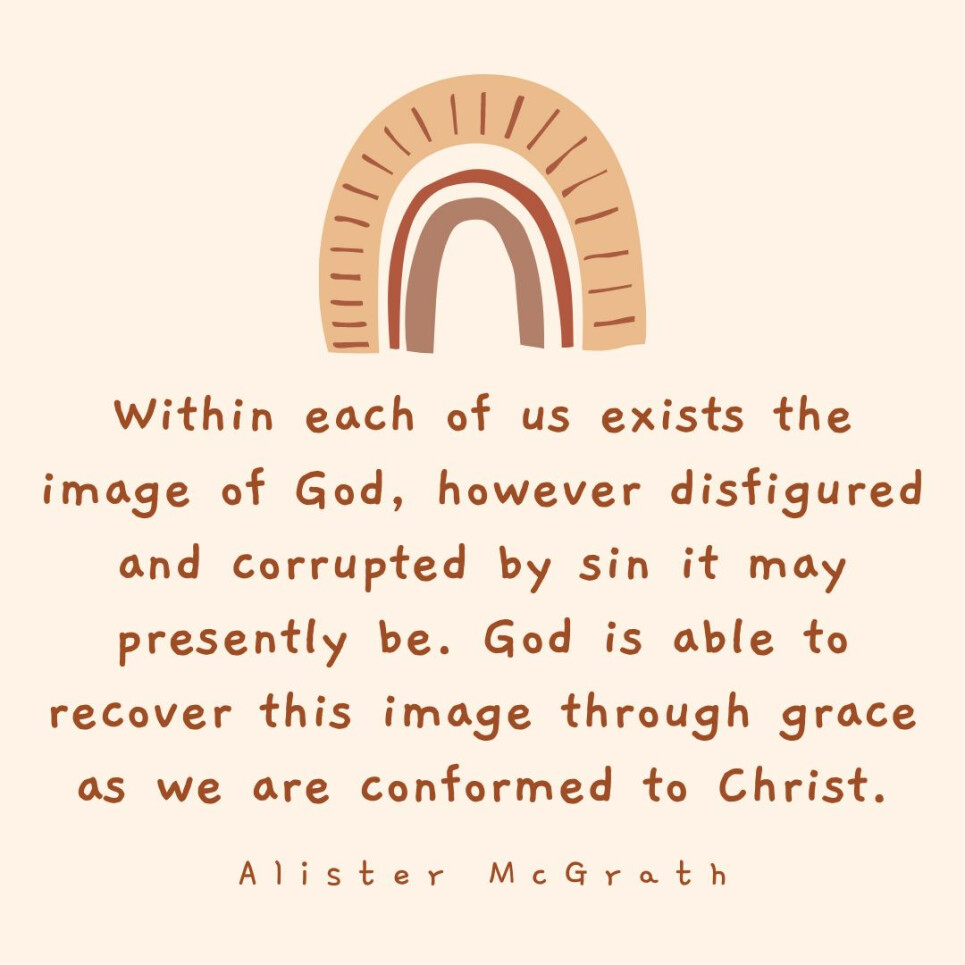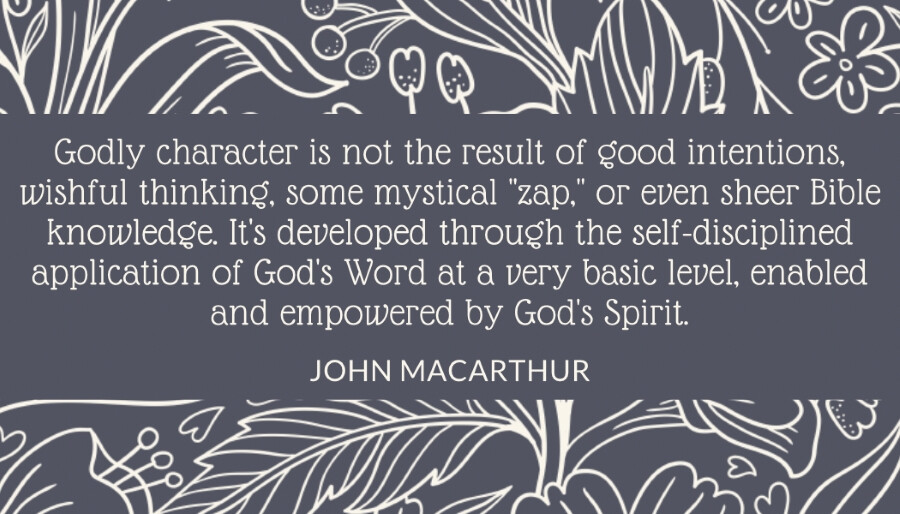Last week we focused on the process of forgiving others (which you can read here). This week, we will take a deep dive into self-forgiveness and repentance. The concept of self-forgiveness is all too often an overlooked aspect of the forgiveness and repentance process.
 The Importance of Self-Forgiveness
The Importance of Self-Forgiveness
The concept of self-forgiveness holds profound significance, as it aligns with the teachings of love, compassion, and redemption found in the Bible. As humans, we are inherently flawed and susceptible to making mistakes. While forgiving others and seeking God's forgiveness is essential, it is equally important to recognize the necessity of self-forgiveness. The act of self-forgiveness acknowledges our imperfections and brokenness while embracing God's infinite grace and mercy. By holding onto guilt and self-condemnation, we inadvertently limit our capacity to fully embrace God's love and purpose for our lives. Self-forgiveness allows us to release the burdens of past mistakes, paving the way for spiritual growth and a deeper connection with God. It is a humbling act of accepting God's forgiveness and extending that same grace towards ourselves, recognizing that God's love is all-encompassing and unconditional. As we forgive ourselves, we open our hearts to God's transformative power, allowing Him to heal our wounds and guide us toward a path of restoration and spiritual wholeness. Self-forgiveness is not an evasion of responsibility but a courageous step toward embodying God's redemptive plan and fully experiencing the freedom and joy that comes from walking in His forgiveness and grace.

Overcoming Obstacles That Prevent Self-Forgiveness
As we discussed last week, forgiveness can be a challenging journey that requires understanding, patience, and compassion. Because of our innate human reaction to hold ourselves to high expectations, we tend to harshly criticize ourselves and hold onto self-blame, making self-forgiveness have even more difficult and extensive obstacles to overcome. We can overcome the various challenges by acknowledging our shortcomings and holding ourselves accountable. When we examine the consequences that our actions have affected ourselves or others, we are able to understand the pain or harm we caused, allowing the room to learn from the experience. This lets us identify any changes that we can make in the future.
No matter how difficult, you need to allow yourself to feel the emotions that arise. Common emotions are guilt, shame, and regret. Validate and process these feelings through healthy means. Pray to God and ask Him to release the burden of guilt, shame, and self-condemnation to God. Surrender your pain and regrets to Him, trusting that He is able to heal and restore you. Allow His forgiveness to bring you peace and freedom. You need to let go of the need for perfection and unrealistic expectations of yourself. This can be easier by developing an understanding that growth and self-improvement take time and patience by welcoming the journey of self-forgiveness as a process rather than expecting immediate resolution.
A large part of freeing yourself from perfectionism is challenging negative self-talk. Replace these thoughts and self-condemnation with God's truth. Remind yourself of your identity in Christ and His promises of forgiveness, redemption, and newness of life. Be gentle with yourself. Accept God's unconditional love and forgiveness for you. When you embrace God’s grace in your daily life, you are able to extend the same grace and forgiveness to yourself that He offers to you. Understand that God's forgiveness is not based on your own merit but on His grace and the sacrifice of Jesus on the cross. Accept that you are worthy of God's forgiveness and that He offers you a fresh start.
Meditating on God's Word can help you by providing comfort, guidance, and assurance of His forgiveness. Examples include: Psalm 103:12, Isaiah 1:18, 2 Chronicles 7:14, Acts 3:19, 2 Peter 3:9, Micah 7:18, James 4:8-10 and 1 John 1:9. If applicable, apologize to anyone who has been negatively impacted by your actions. Turn to God and humbly express genuine remorse and repentance. Although daunting, you are worthy of forgiveness and self-love. When you seek out God, He will ease the hardship by guiding you through the whole operation while blanketing you with mercy and love.
 The Importance of Repentance
The Importance of Repentance
Practicing repentance is an essential aspect of spiritual growth and reconciliation with God. Repentance is not merely expressing remorse for one's sins; it is a heartfelt turning away from sinful behaviors and a sincere desire to realign one's life with God's will. The Bible teaches that all have sinned and fallen short of God's glory (Romans 3:23), and repentance offers the opportunity for transformation and restoration.
When we adopt repentance, we demonstrate our recognition of our need for God's forgiveness and grace. It allows us to humble ourselves before God, surrendering our pride and opening our hearts to His life-altering authority. Through repentance, we lay the foundation for a renewed relationship with God, one built on humility, obedience, and a desire to align our lives with His will. It is an ongoing practice that encourages spiritual growth, drawing us closer to God and enabling us to experience His boundless love, mercy, and forgiveness.
Repentance requires honesty and vulnerability, as we confront our own weaknesses and seek God's help to change and become more Christ-like. Repentance is not a burden or a means to earn salvation but rather a response to God's unending grace, an opportunity to continually realign our hearts and minds with His divine purpose. It is an invitation to experience the freedom and abundant life that comes from surrendering our sins to God and accepting His loving embrace.
Through genuine repentance, we demonstrate our willingness to surrender our old ways and receive a new life in Christ. God promises that if we confess our sins, He is faithful and just to forgive us and cleanse us from all unrighteousness (1 John 1:9). Repentance is not a one-time event but a continual attitude of the heart, fostering a deep and intimate relationship with God. As we practice repentance, we experience the profound joy of God's forgiveness and the life-changing influence of His love, leading us to live a life that glorifies Him and reflects His grace to the world.
 The Process of Repentance
The Process of Repentance
Seeking repentance involves the recognition, accountability, and confession of specific thoughts, words, or actions that have fallen short of God’s teachings. It requires full transparency and sincerity when speaking to Him about your sins and your willingness to turn away from the sinful thoughts and behaviors. It involves a pure desire to align your thoughts, actions, and attitudes with His will. You need to submit yourself to Him and ask Him for His strength and guidance to overcome any sinful tendencies or patterns. Ask God to wash away your wrongdoings, trust Him to forgive you through Christ’s sacrifice, and accept His forgiveness. Encompass the process of repentance as an opportunity for a renewed relationship with Him. When you surrender yourself to God, He will help you live a life that honors Him.
 The Comparison of Self-Forgiveness and Repentance
The Comparison of Self-Forgiveness and Repentance
While self-forgiveness and repentance are distinct, the relationship between them is closely intertwined and complementary. Self-forgiveness allows individuals to experience the fullness of God's forgiveness and love, releasing them from the shackles of guilt and shame. It is an act of accepting one's own humanity, acknowledging mistakes, and accepting the metamorphic strength of God's grace.
Repentance, on the other hand, is a response to forgiveness. It is a vital step towards restoration and renewal. It involves a genuine turning away from sin, seeking forgiveness from God and others, and committing to a life aligned with God's will. It demonstrates a genuine recognition of wrongdoing and a desire for change, opening the door for healing and reconciliation to take place. Both self-forgiveness and repentance foster personal growth, healing, and the deepening of one's relationship with God. Through these processes, you embody God's mercy, extend grace to yourself and others, and walk in the path of spiritual renewal.

How to Identify When You Need to Forgive Yourself or Repent
Here are a few indicators that can help you recognize when you need to practice self-forgiveness and repentance:
Conviction of Wrongdoing:
If you feel a sense of guilt, shame, or remorse over your actions or behaviors, it may be an indication that you need to repent. The Holy Spirit often convicts our hearts when we have strayed from God's will.
Conflict in Relationships:
When your actions have caused harm or strained your relationships with others, it is a sign that repentance may be necessary. Recognizing the impact of your behavior on others and their well-being can prompt a need for repentance and seeking forgiveness.
Conviction by the Word of God:
The Bible serves as a guide for our lives, revealing God's standards and principles. When you come across passages or teachings that highlight areas of your life where you fall short, it can prompt a realization of the need for repentance and aligning your life with God's Word.
Lack of Peace or Spiritual Unrest:
If you are experiencing a lack of peace in your heart or a sense of spiritual unrest, it may indicate that there are unresolved sins or unconfessed wrongdoing in your life. Repentance and seeking forgiveness can bring about a renewed sense of peace and spiritual well-being.
Promptings from the Holy Spirit:
The Holy Spirit works within us, guiding and convicting us of our need for repentance. Pay attention to the promptings and nudges from the Spirit, as they can help you recognize areas of your life that require repentance and surrender to God.
 All-In-All
All-In-All
Altogether, self-forgiveness involves treating ourselves with kindness, understanding, and forgiveness, just as we would extend those qualities to others. When we forgive ourselves, we are accepting ourselves, our flaws, and all, allowing us to recognize that we are imperfect human beings who make mistakes and are deserving of love and compassion. When we hold onto guilt, shame, or self-condemnation, it hinders our ability to move forward. That's why through self-forgiveness we are enabled to admit our humanity and learn from our mistakes and failures without being paralyzed by guilt or self-blame. We are allowing our experiences to be seen as opportunities for growth, resilience, and healing. It aligns with the teachings of love, grace, and redemption, allowing us to experience God's forgiveness and embark on our spiritual journey with a sense of freedom and wholeness.
Repentance is the subsequent step in the process that is essential for unerring forgiveness. It is a continual procedure of aligning our lives with God's will and seeking His forgiveness. It is a response to His boundless love and grace, allowing us to experience His transformative power in our lives. He is loving, merciful, and eager to forgive those who genuinely seek Him. Approach Him with a humble and contrite heart, trusting in His abundant grace and forgiveness through Jesus Christ.
 Ultimately, forgiving others, self-forgiveness and repentance are interconnected aspects of the Christian journey. Forgiveness reflects God's love and mercy, and repentance allows individuals to experience the transformational power of God's forgiveness, leading to restored relationships and spiritual growth.
Ultimately, forgiving others, self-forgiveness and repentance are interconnected aspects of the Christian journey. Forgiveness reflects God's love and mercy, and repentance allows individuals to experience the transformational power of God's forgiveness, leading to restored relationships and spiritual growth.
- Torrance Church of Christ

 Grace Highlights Redemption and Salvation: Grace is at the core of salvation. Through God's grace, we can receive forgiveness and reconciliation with Him. This means that, despite our human imperfections and sinful nature, we can be saved and have eternal life through faith in Jesus Christ.
Grace Highlights Redemption and Salvation: Grace is at the core of salvation. Through God's grace, we can receive forgiveness and reconciliation with Him. This means that, despite our human imperfections and sinful nature, we can be saved and have eternal life through faith in Jesus Christ. Grace Provides Hope and Comfort: In times of hardship and suffering, grace offers hope and comfort. We can find solace in the belief that God's grace sustains us through difficult circumstances and provides strength to persevere.
Grace Provides Hope and Comfort: In times of hardship and suffering, grace offers hope and comfort. We can find solace in the belief that God's grace sustains us through difficult circumstances and provides strength to persevere. Grace Enhances the Ability to Love: Grace exemplifies God's boundless love for humanity. It is through experiencing and understanding this grace that we are inspired to love and serve others selflessly. Grace encourages us to show compassion, kindness, and forgiveness to others as a reflection of the love we have received from God.
Grace Enhances the Ability to Love: Grace exemplifies God's boundless love for humanity. It is through experiencing and understanding this grace that we are inspired to love and serve others selflessly. Grace encourages us to show compassion, kindness, and forgiveness to others as a reflection of the love we have received from God. Winding Up
Winding Up











